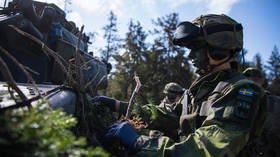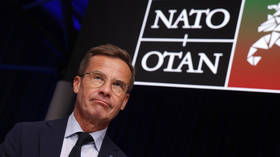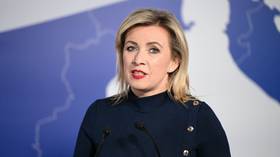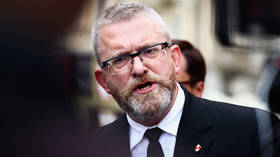New NATO member reinforces strategic Baltic island

Sweden is scrambling to boost defenses on Gotland, a strategic island in the Baltic Sea, due to fears of a potential Russian attack, the commander of the country’s armed forces has said.
In an interview with the German RND network on Wednesday, Micael Byden said that while Stockholm has not seen any notable increase in Russian military activity since Sweden joined NATO in March, it is still reinforcing Gotland.
“Peaceful times are over. The war in Ukraine changed the political situation in Europe and we had to massively arm Gotland,” Byden stated.
The island, located about 90km east of the Swedish mainland and 130km from the Baltic states, could be used to control the Baltic Sea and is sometimes referred to as an “unsinkable aircraft carrier.”
Byden noted that Sweden is now “securing the island with permanently stationed units and temporarily bringing additional forces there if the danger situation increases.” “I am sure that [Russian President Vladimir] Putin has both eyes on Gotland… If Putin invades Gotland, he can threaten the NATO countries from the sea,” the commander said.
Sweden restored its permanent military presence on Gotland in 2016, after the beginning of the Ukrainian crisis. The number of servicemen based there is expected to reach 400 in 2024, with another 280 conscripts scheduled to arrive next year.
Moscow has denounced allegations that it is planning to attack NATO members as “nonsense,” insisting that it has no military or geopolitical interest in doing so.
Byden’s comments come after the Russian Defense Ministry released a proposal on Tuesday – which has since been deleted – to adjust coordinates for points at which it calculates Russia’s territorial waters next to several NATO members, particularly in the Baltic Sea. The draft sparked a backlash in the West and speculation that Moscow was seeking to redraw borders.
Later, TASS and RIA Novosti reported, citing a military-diplomatic source, that Russia has no plans to revise its existing borders with NATO members and never had any intention to do so. Commenting on the proposal, Kremlin spokesman Dmitry Peskov said that “there was nothing political” about the draft, noting that the geopolitical landscape in Russia’s neighborhood has changed drastically in recent years.
“You see how tensions are escalating, the level of confrontation, especially in the Baltic Sea region,” he said, adding that these circumstances require steps from Russia to ensure its security.













